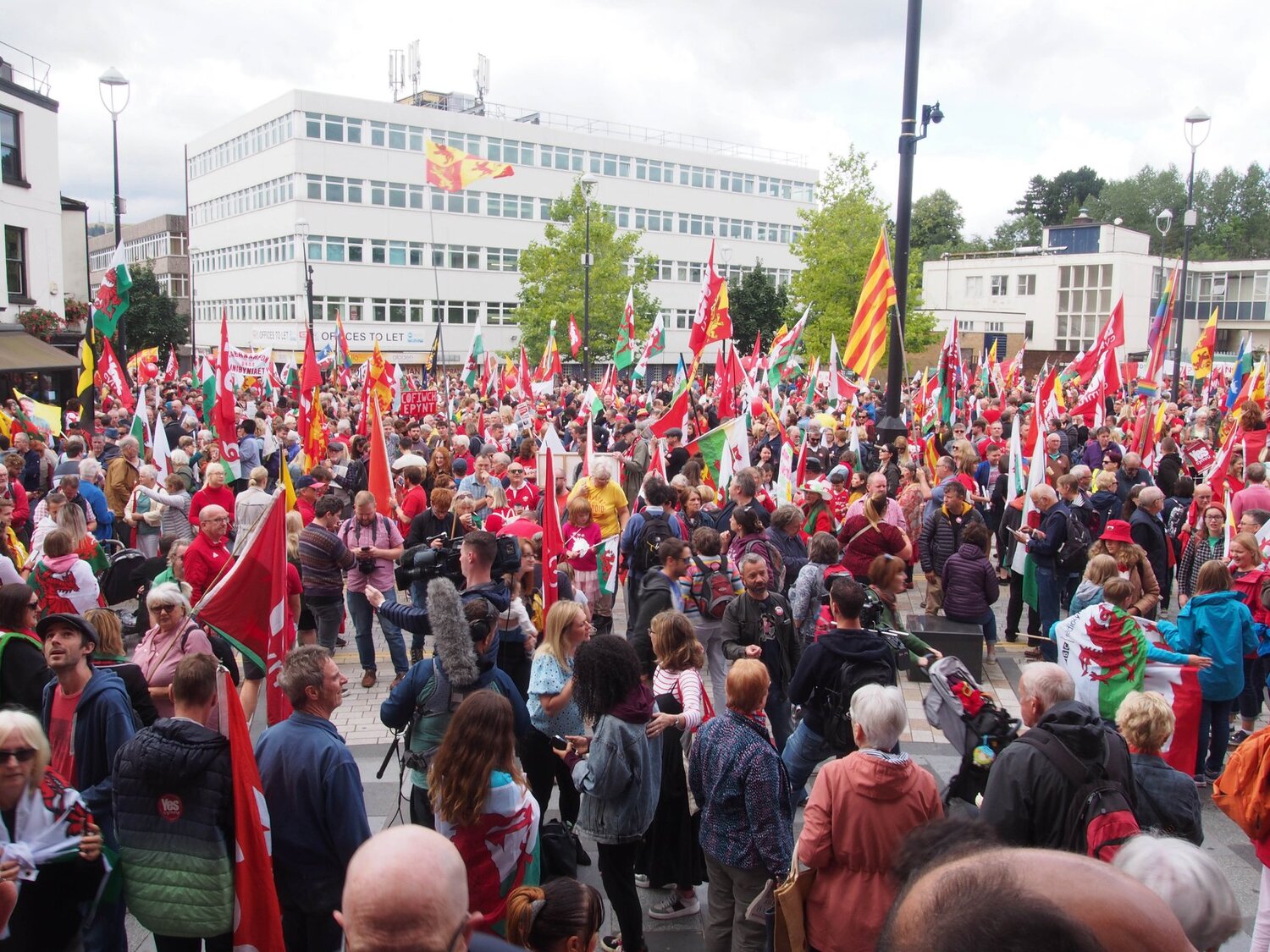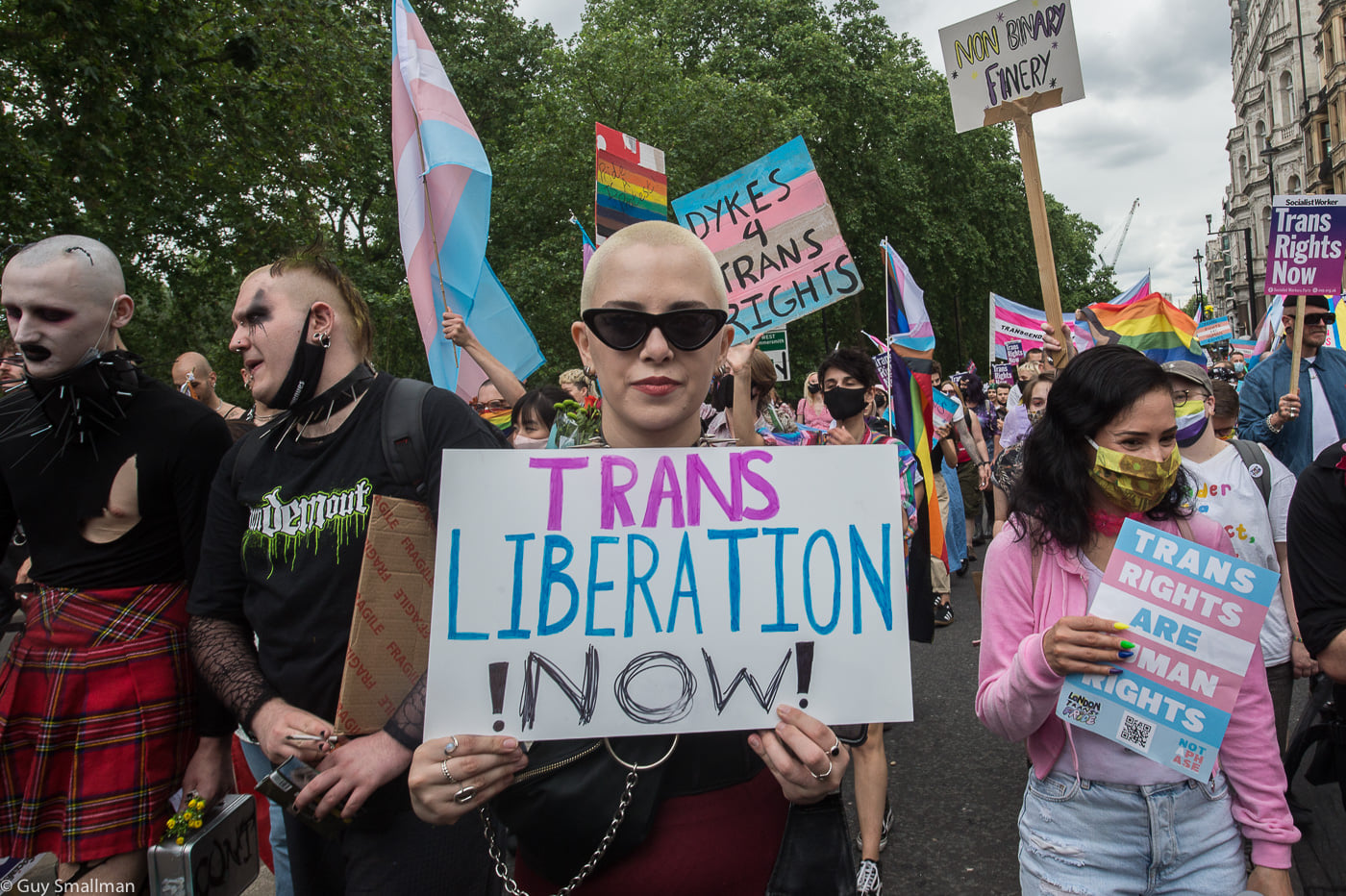
Finding Indy Wales’ Postcapitalist Desire | Gareth Leaman
“IT WOULD BE A DISASTER IF THE GROWING POLITICAL CONSCIOUSNESS THAT INDYWALES IS NURTURING WERE TO BE ALLOWED TO DECAY INTO YET ANOTHER GENERATION DISILLUSIONED WITH THEIR COLLECTIVE CAPACITY TO CHANGE THEIR OWN LIVES FOR THE BETTER.”
With an unceasing accumulation of crises testing the structural integrity of the United Kingdom, it’s unsurprising that the possibility of an independent Welsh state is becoming increasingly normalised in popular consciousness. After suffering helplessly under a Tory austerity that the people of Wales have never consented to, a true popular front is emerging in which most liberal-left activists, organisations and campaign groups appear willing to countenance the efficacy of ‘IndyWales’ as a vehicle for progressive political change.
Yet despite its increasing mass and fervour, at present this ‘movement’, rather than being a singular coherent project, is in fact a loose coalition of interests centred around a fundamentally abstract goal and is thus, like Brexit before it, a mere empty receptacle into which all manner of heterogeneous (and often outright contradictory) political desires can be poured. ‘A politics without demands’, write Srnicek and Williams, ‘is simply a collection of aimless bodies’, and so while the abstraction of this notion of independence has allowed for its easy growth in support, it is also yet to become fully politically articulate.
The danger of this movement’s success being predicated upon a politics-without-demands is its susceptibility to easy co-option by liberal politicians seeking to channel this popular sentiment into making only superficial gestures towards concrete goals, stymying any fledgling political consciousness among its newly-invigorated supporters.
Those hoping to see this initial interest mature into an effective progressive force cannot allow this to happen. For despite its current inarticulate stage, there is real potential in the independence movement in that it has proven to be a highly successful means of bringing the disenfranchised, atomised residents of Wales together and facilitating a conversation about the way they live and the structures that govern them.
The power of such as process of consciousness raising, as Mark Fisher describes it, ‘is the simplicity of it’:
‘All you need is the members of the group together, and when they talk together, honestly and openly, they’ll start to see that they have common problems and common interests, and also that the cause of those problems is not them but is something else.’
If the collective realisation of such commonalities can be cultivated by the platforms and organisations invested in its success, the Welsh independence movement contains within itself the potential for this to occur on a mass scale.
In his One-Dimensional Man, Herbert Marcuse writes of the presence of certain abstract ‘value judgements’ in any cogent critical analysis of society, including ‘the judgement that human life is worth living, or rather can be and ought to be made worth living’, which begs one fundamental question regarding the organisation of society:
‘among the various possible and actual modes of organising and utilizing the available resources, which ones offer the greatest chance of an optimal development?’
This, essentially, is the consciousness-raising activity that the Welsh independence debate is enabling. From this initial theoretical abstraction, real political demands can begin to emerge, and the previously politically inarticulate can begin to cohere around a set of tangible goals worth fighting for.
For a superlative example of this process at work, Dan Evans’ recent article for Planetdemonstrates how the shared experiences of geographically-disparate housing rights campaigners are fostering a greater understanding of class struggle, reframing individual or small-scale issues in terms of structural problems with tangible causes, effects and solutions. National politics in this instance proves to be a bonding agent that enables class solidarity to emerge among previously disconnected communities. As Evans describes it:
‘the issue of housing demonstrates clearly how the problems facing the working class of Wales stem from the same root – capitalism – even if they have slightly different manifestations in different places.’
As discussions of this type spread and become commonplace, the Welsh independence debate will be no longer be conceived of as an abstract conversation with ill-defined objectives: it instead becomes a project of true utopianism which, as Jack Kellam writes, ‘demands a search for cracks in the present that might reveal and prefigure a possible better future’. The more its participants share these experiences, the more a lucid societal analysis emerges, producing a new collective consciousness whose acts of solidarity posit independence as an escape from structural oppressions of all kinds.
Welsh independence – to borrow one final Marcusism – represents ‘the spectre of a world which could be free’, the mechanism which enables the fulfilment of fundamental human desires and granting of freedoms that current political paradigms do not allow for. Considering what’s at stake here – an increasingly binary choice between unceasing and increasingly fascistic Tory rule, and liberation from it by any means necessary – it would be a disaster if the growing political consciousness that IndyWales is nurturing were to be allowed to decay into yet another generation disillusioned with their collective capacity to change their own lives for the better.
This is the responsibility our elected politicians are charged with. If they choose to co-opt the independence movement and merely superficially tinker with the neoliberal status quo (as we see with the leadership of Plaid Cymru), or belligerently reject it altogether (as we see with the overwhelming majority of Welsh Labour politicians), they will reap the consequences of an emboldened British right-wing with little to stop their project of unremitting immiseration. Instead they must allow the grassroots of the movement the intellectual autonomy to, as Undod have stated, ‘articulate the possibilities’ bound up in this affirmative rejection of British capitalist realism that IndyWales, in its formative fragility, is gesturing towards, even if it is not yet immediately foregrounded in its collective consciousness. It is this latent postcapitalist desire that should be given the freedom to develop if Welsh independence is to ever become materially meaningful and truly transformative.
The writer is from Newport and a member of Undod, the radical independence campaign.


We Need To Radically Re-Think Policing – Shavanah Taj